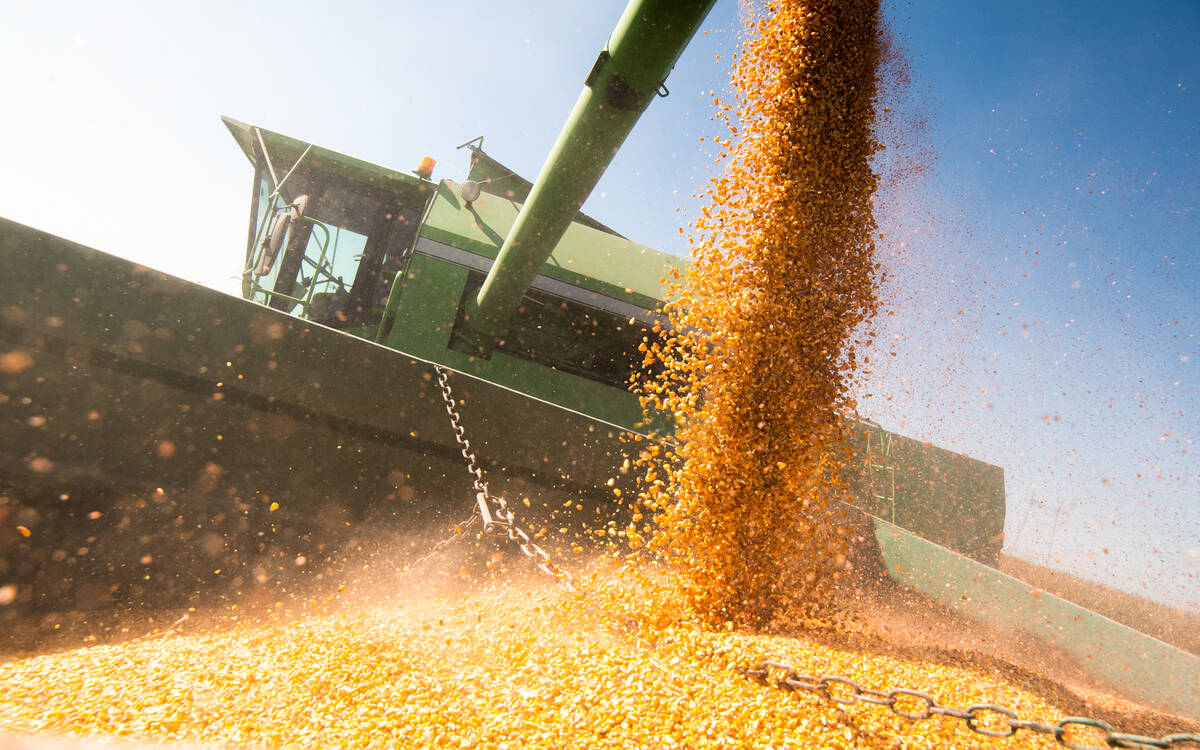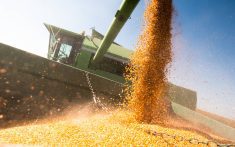A few more Canadian farm groups and farmers are now on board as plaintiffs in a U.S. suit against Monsanto, billed as a pre-emptive strike against any chance that the seed and ag chem firm could sue them for patent infringement.
Ramping up their case in a release Wednesday, the collective plaintiffs said they’re not reassured by Monsanto’s policy statement that it doesn’t and won’t sue farmers whose crops turn up trace amounts of Monsanto’s patent-protected genetics through “inadvertent means.”
Canadian plaintiffs joining the suit in an amended complaint filed Wednesday in New York City include:
Read Also

Feed Grain Weekly: Corn affecting barley prices in Lethbridge
Corn imports entering Lethbridge have lowered prices for feed barley compared to those in Edmonton.
- Union Paysanne, a Quebec advocacy group for small-scale and medium-sized independent family farmers, based at St-Hyacinthe;
- Manitoba Organic Alliance, an organic group based at Plumas, Man., billing itself as “represent(ing) and promot(ing) the interests of the entire provincial organic value chain;”
- the Peace River Organic Producers Association, with 45 members in the Peace region of northeastern British Columbia and northwestern Alberta and based at Silver Valley, Alta.; and
- Murray Bast, an ag consultant at Wellesley, Ont. and an organic cattle producer who, the complaint noted, “grows alfalfa that he does, or could, sell into the United States.”
The Public Patent Foundation (PUBPAT), a New York City-based organization representing the plaintiffs, has mounted online an April 18 letter from its executive director Daniel Ravicher to Monsanto lawyers.
Ravicher wrote that PUBPAT’s clients fear transgenic seed contamination in their crops and do not “intend to possess, use or sell any transgenic seed, including any transgenic seed potentially covered by Monsanto’s patents.”
Thus, he wrote, to alleviate the clients’ fears of crop contamination, PUBPAT wants the company to “expressly waive any claim for patent infringement it may ever have against our clients and memorialize that waiver by providing a written covenant not to sue.”
“Inadvertent means”
The organization also posted what it says is an April 28 response from Washington, D.C. lawyer Seth Waxman, a former U.S. solicitor general representing St. Louis-based Monsanto.
“As it has previously publicly stated, and restates here, Monsanto policy has never been, nor will be, to exercise its patent rights where trace amounts of its patented seed or traits are present in a farmer’s fields as a result of inadvertent means,” the response stated.
PUBPAT and its clients launched their suit in late March in a U.S. District Court in New York City, including 60 farm groups, seed businesses, farmers and farms.
“This case asks whether Monsanto has the right to sue organic farmers for patent infringement if Monsanto’s transgenic seed or pollen should land on their property,” Ravicher said at the time.
Among farmers who the suit claims “did not want to be contaminated by transgenic seed” but had been sued by Monsanto, the only Canadian farmer PUBPAT’s claim mentioned by name is Saskatchewan’s Percy Schmeiser.
Monsanto successfully sued Schmeiser for patent violation over Roundup Ready canola in 2001, a decision upheld at the Supreme Court of Canada in 2004.
Canadian plaintiffs who joined PUBPAT’s suit in March include Ottawa-based Canadian Organic Growers (COG) plus two seed dealers and three farms in the Prairie provinces.
The added Canadian and U.S.-based plaintiffs announced Wednesday include 14 organizations, two seed companies and seven farmers or farms, for a total of 83 plaintiffs.
Monsanto had no official comment Wednesday. In March the company described allegations in the suit as “false, misleading and deceptive” and the plaintiffs’ approach as “a publicity stunt designed to confuse the facts about American agriculture.”















